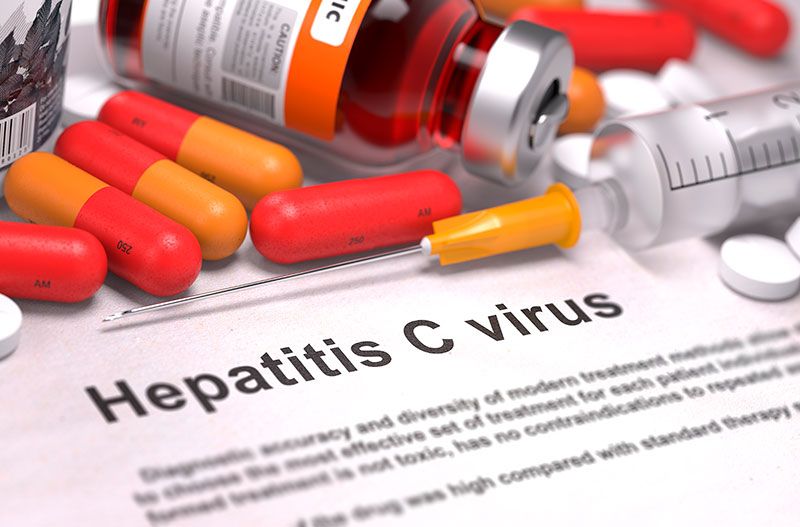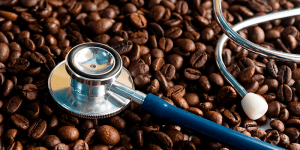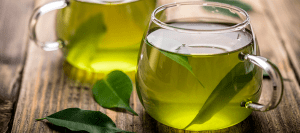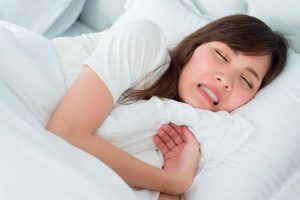Asociación de consumo de café con úlcera gástrica, úlcera duodenal, esofagitis por reflujo y la enfermedad por reflujo no erosiva
28-04-2017
Debido al efecto inductivo del café sobre la producción de ácido gástrico, se han estudiado los efectos que tiene el café sobre las patologías de las vías digestivas altas. Este estudio evalúa el efecto del consumo de café sobre cuatro patologías prevalentes: úlcera gástrica, úlcera duodenal, esofagitis por reflujo y enfermedad por reflujo gastroesofágico no erosiva. La población a estudio consistió de 9,517 adultos que asistían a chequeo médico entre octubre 2010 y septiembre 2011, de los cuales 8,013 participantes fueron elegibles. Todos los participantes respondieron a un cuestionario sobre frecuencia de síntomas generales de reflujo gastroesofágico, así como un cuestionario específico sobre hábitos de consumo y antecedentes relacionados a patologías de vías digestivas altas. También se les realizó endoscopia de vías digestivas altas, ecografía abdominal, químicas sanguíneas, radiografía de tórax y examen físico. Adicionalmente se midieron niveles séricos de anticuerpos anti H.pylori, se calculó la tasa de pepsinógeno I/II, se indagó por hábitos de consumo de cigarrillo y alcohol, y se calculó el índice de masa corporal (IMC), con la intención de controlar posibles factores confusores; dado que estos se asocian a las patologías en estudio. Se llevó a cabo también un meta-análisis sobre sobre asociación entre consumo de café enfermedad ácido péptica (úlcera gástrica y úlcera duodenal), un total de 10 manuscritos se incluyeron en el análisis. Asociaciones entre consumo de café y las cuatro patologías fueron estudiadas. Ocho factores de riesgo adicionales fueron considerados y su relación con las cuatro patologías mediante análisis univariados y multivariados. El meta-análisis no detectó ninguna asociación entre el consumo de café con úlcera gástrica ni úlcera duodenal. El estudio no encontró asociaciones significativas entre el consumo de café y las cuatro patologías de vías digestivas altas estudiadas.
Shimamoto T, Yamamichi N, Kodashima S, Takahashi Y, Fujishiro M, et al. (2013) No Association of Coffee Consumption with Gastric Ulcer, Duodenal
Ulcer, Reflux Esophagitis, and Non-Erosive Reflux Disease: A Cross-Sectional Study of 8,013 Healthy Subjects in Japan. PLoS ONE 2013; 8(6):e65996.
1. List of countries by coffee consumption per capita, (Wikipedia, Available: http://en.wikipedia.org/wiki/List_of_countries_by_coffee_consumption_per_capita, Accessed 2012 September 5.
2. El-Serag HB (2007) Time trends of gastroesophageal reflux disease: a systematic review. Clin Gastroenterol Hepatol 5: 17–26. [PubMed]
3. Schubert ML, Peura DA (2008) Control of gastric acid secretion in health and disease. Gastroenterology 134: 1842–1860. [PubMed]
4. Cohen S, Booth GH (1975) Gastric acid secretion and lower-esophageal-sphincter pressure in response to coffee and caffeine. N Engl J Med 293: 897–899. [PubMed]
5. Boekema PJ, Samsom M, van Berge Henegouwen GP, Smout AJ (1999) Coffee and gastrointestinal function: facts and fiction. A review. Scand J Gastroenterol Suppl 230: 35–39. [PubMed]
6. Kaltenbach T, Crockett S, Gerson LB (2006) Are lifestyle measures effective in patients with gastroesophageal reflux disease? An evidence-based approach. Arch Intern Med 166: 965–971. [PubMed]
7. Aldoori WH, Giovannucci EL, Stampfer MJ, Rimm EB, Wing AL, et al. (1997) A prospective study of alcohol, smoking, caffeine, and the risk of duodenal ulcer in men. Epidemiology 8: 420–424. [PubMed]
8. Kato I, Nomura AM, Stemmermann GN, Chyou PH (1992) A prospective study of gastric and duodenal ulcer and its relation to smoking, alcohol, and diet. Am J Epidemiol 135: 521–530. [PubMed]
9. Eisig JN, Zaterka S, Massuda HK, Bettarello A (1989) Coffee drinking in patients with duodenal ulcer and a control population. Scand J Gastroenterol 24: 796–798. [PubMed]
10. Elta GH, Behler EM, Colturi TJ (1990) Comparison of coffee intake and coffee-induced symptoms in patients with duodenal ulcer, nonulcer dyspepsia, and normal controls. Am J Gastroenterol 85: 1339–1342. [PubMed]
11. Abu Farsakh NA (2002) Risk factors for duodenal ulcer disease. Saudi Med J 23: 168–172. [PubMed]
12. Ostensen H, Gudmundsen TE, Ostensen M, Burhol PG, Bonnevie O (1985) Smoking, alcohol, coffee, and familial factors: any associations with peptic ulcer disease? A clinically and radiologically prospective study. Scand J Gastroenterol 20: 1227–1235. [PubMed]
13. Araki S (1985) The factors affecting gastric and duodenal ulcers in Japanese factory workers. A case-control study. Sangyo Igaku 27: 242–247. [PubMed]
14. Nakamura T, Kamakami T, Ohkuni A, Ko S, Itoh Y, et al. (1983) [Effects of smoking, alcohol and coffee drinking on the course of peptic ulcer]. Nihon Shokakibyo Gakkai Zasshi 80: 2493–2503. [PubMed]
15. Atsuko S, Tetsunojo U (1998) Onset of Peptic Ulcer and Its Relation to Work-Related Factors and Life Events : A Prospective Study. Journal of occupational health 40: 22–31.
16. Misaki F, Hayashi K, Watanabe Y, Kawai K (1983) [An epidemiological study on risk factors in peptic ulcer]. Nihon Shokakibyo Gakkai Zasshi 80: 2504–2511. [PubMed]
17. Van Deventer G, Kamemoto E, Kuznicki JT, Heckert DC, Schulte MC (1992) Lower esophageal sphincter pressure, acid secretion, and blood gastrin after coffee consumption. Dig Dis Sci 37: 558–569. [PubMed]
18. Thomas FB, Steinbaugh JT, Fromkes JJ, Mekhjian HS, Caldwell JH (1980) Inhibitory effect of coffee on lower esophageal sphincter pressure. Gastroenterology 79: 1262–1266. [PubMed]
19. Wendl B, Pfeiffer A, Pehl C, Schmidt T, Kaess H (1994) Effect of decaffeination of coffee or tea on gastro-oesophageal reflux. Aliment Pharmacol Ther 8: 283–287. [PubMed]
20. Pehl C, Pfeiffer A, Wendl B, Kaess H (1997) The effect of decaffeination of coffee on gastro-oesophageal reflux in patients with reflux disease. Aliment Pharmacol Ther 11: 483–486. [PubMed]
21. Eslick GD, Talley NJ (2009) Gastroesophageal reflux disease (GERD): risk factors, and impact on quality of life-a population-based study. J Clin Gastroenterol 43: 111–117. [PubMed]
22. Wang JY, Liu SB, Chen SY, Dobson A (1996) Risk factors for peptic ulcer in Shanghai. Int J Epidemiol 25: 638–643. [PubMed]
23. Rosenstock S, Jorgensen T, Bonnevie O, Andersen L (2003) Risk factors for peptic ulcer disease: a population based prospective cohort study comprising 2416 Danish adults. Gut 52: 186–193. [PMC free article] [PubMed]
24. Meucci G, Di Battista R, Abbiati C, Benassi R, Bierti L, et al. (2000) Prevalence and risk factors of Helicobacter pylori-negative peptic ulcer: a multicenter study. J Clin Gastroenterol 31: 42–47. [PubMed]
25. Yaghoobi M, Farrokhyar F, Yuan Y, Hunt RH (2010) Is there an increased risk of GERD after Helicobacter pylori eradication?: a meta-analysis. Am J Gastroenterol 105: 1007–1013; quiz 1006, 1014. [PubMed]
26. Malfertheiner P, Chan FK, McColl KE (2009) Peptic ulcer disease. Lancet 374: 1449–1461. [PubMed]
27. Schottker B, Adamu MA, Weck MN, Brenner H (2012) Helicobacter Pylori Infection Is Strongly Associated With Gastric and Duodenal Ulcers in a Large Prospective Study. Clin Gastroenterol Hepatol 10: 487–493 e481. [PubMed]
28. Li Z, Zou D, Ma X, Chen J, Shi X, et al. (2010) Epidemiology of peptic ulcer disease: endoscopic results of the systematic investigation of gastrointestinal disease in China. Am J Gastroenterol 105: 2570–2577. [PubMed]
29. Richter JE, Falk GW, Vaezi MF (1998) Helicobacter pylori and gastroesophageal reflux disease: the bug may not be all bad. Am J Gastroenterol 93: 1800–1802. [PubMed]
30. Huang JQ, Sridhar S, Hunt RH (2002) Role of Helicobacter pylori infection and non-steroidal anti-inflammatory drugs in peptic-ulcer disease: a meta-analysis. Lancet 359: 14–22. [PubMed]
31. Yamaji Y, Mitsushima T, Ikuma H, Okamoto M, Yoshida H, et al. (2001) Inverse background of Helicobacter pylori antibody and pepsinogen in reflux oesophagitis compared with gastric cancer: analysis of 5732 Japanese subjects. Gut 49: 335–340. [PMC free article] [PubMed]
32. Brenner H, Berg G, Lappus N, Kliebsch U, Bode G, et al. (1999) Alcohol consumption and Helicobacter pylori infection: results from the German National Health and Nutrition Survey. Epidemiology 10: 214–218. [PubMed]
33. Brenner H, Rothenbacher D, Bode G, Adler G (1997) Relation of smoking and alcohol and coffee consumption to active Helicobacter pylori infection: cross sectional study. BMJ 315: 1489–1492. [PMC free article] [PubMed]
34. Quartero AO, de Wit NJ (1998) Smoking, alcohol and coffee consumption, and H pylori infection. Cross sectional study shows no protective effect of alcohol. BMJ 316: 1020. [PubMed]
35. World gastroenterology organisation global guideline: Helicobacter pylori in developing countries. J Dig Dis 12: 319–326. [PubMed]
36. OECD Health Data 2012 – Frequently Requested Data (OECD, Available: http://www.oecd.org/health/healthpoliciesanddata/oecdhealthdata2012-frequentlyrequesteddata.htmAccessed 2012 September 27.
37. Yamamichi N, Mochizuki S, Asada-Hirayama I, Mikami-Matsuda R, Shimamoto T, et al. (2012) Lifestyle factors affecting gastroesophageal reflux disease symptoms: a cross-sectional study of healthy 19864 adults using FSSG scores. BMC Med 10: 45. [PMC free article] [PubMed]
38. Lundell LR, Dent J, Bennett JR, Blum AL, Armstrong D, et al. (1999) Endoscopic assessment of oesophagitis: clinical and functional correlates and further validation of the Los Angeles classification. Gut 45: 172–180. [PMC free article] [PubMed]
39. Klauser AG, Schindlbeck NE, Muller-Lissner SA (1990) Symptoms in gastro-oesophageal reflux disease. Lancet 335: 205–208. [PubMed]
40. Watanabe Y, Kurata JH, Kawamoto K, Kawai K (1992) Epidemiological study of peptic ulcer disease among Japanese and Koreans in Japan. J Clin Gastroenterol 15: 68–74. [PubMed]
41. Friedman GD, Siegelaub AB, Seltzer CC (1974) Cigarettes, alcohol, coffee and peptic ulcer. N Engl J Med 290: 469–473. [PubMed]
42. Nechige R, Sakaki N, Iida Y, Aonuma K, Ogino M, et al. (1981) Back ground Factors of Peptic Ulcer. Yamaguchi medical journal 30: 455–462.
43. Debas HT, Cohen MM, Holubitsky IB, Harrison RC (1971) Caffeine-stimulated acid and pepsin secretion: dose-response studies. Scand J Gastroenterol 6: 453–457. [PubMed]
44. Feldman EJ, Isenberg JI, Grossman MI (1981) Gastric acid and gastrin response to decaffeinated coffee and a peptone meal. JAMA 246: 248–250. [PubMed]
45. Roth JA, Ivy AC (1944) The effect of caffeine upon gastric secretion in the dog, cat and man. Am J Physiol 141: 454–461.
46. Gomez-Ruiz JA, Leake DS, Ames JM (2007) In vitro antioxidant activity of coffee compounds and their metabolites. J Agric Food Chem 55: 6962–6969. [PubMed]
47. Kang NJ, Lee KW, Shin BJ, Jung SK, Hwang MK, et al. (2009) Caffeic acid, a phenolic phytochemical in coffee, directly inhibits Fyn kinase activity and UVB-induced COX-2 expression. Carcinogenesis 30: 321–330. [PMC free article] [PubMed]
48. Seo HS, Hirano M, Shibato J, Rakwal R, Hwang IK, et al. (2008) Effects of coffee bean aroma on the rat brain stressed by sleep deprivation: a selected transcript- and 2D gel-based proteome analysis. J Agric Food Chem 56: 4665–4673. [PubMed]
49. Dennish GW, Castell DO (1972) Caffeine and the lower esophageal sphincter. Am J Dig Dis 17: 993–996. [PubMed]















